Latest DePIN AI News
View AI Projects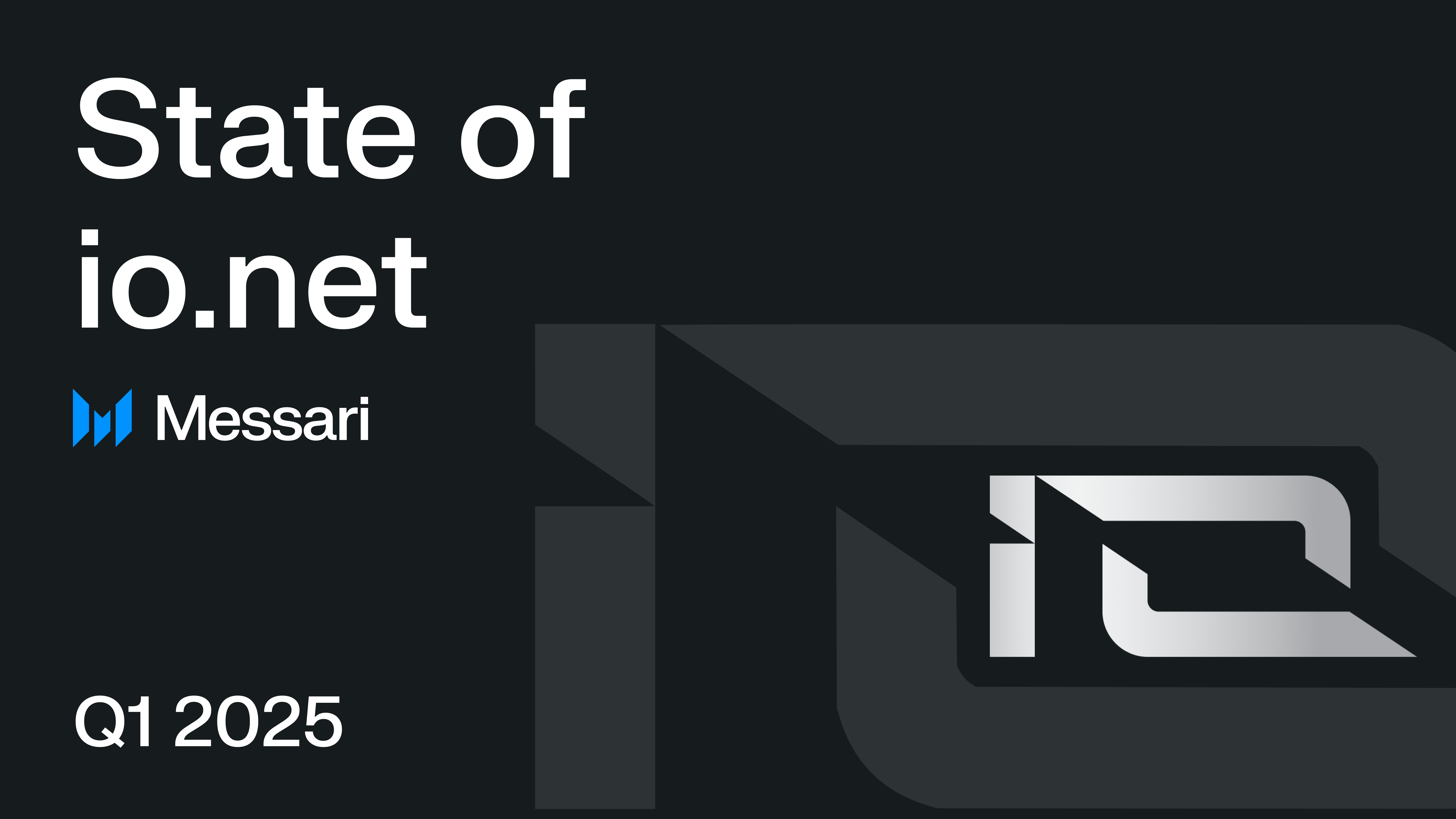
a day ago
io.net Reports Revenue Growth Amid Market Challenges
In the latest quarterly report, io.net has demonstrated significant growth in revenue, achieving an impressive 82.6% increase, which brought its total revenue to $5.7 million. This surge in revenue is particularly noteworthy given the broader contraction in the cryptocurrency market, where the market cap of its IO token plummeted by 71.4% to $108 million, alongside a 74.9% drop in token price. Despite these challenges, io.net has successfully integrated with various AI and compute-focused platforms, including partnerships with Zerebro, KREA, and Injective, aimed at enhancing decentralized GPU compute capabilities for applications in AI and DeFi.
The infrastructure of io.net, which is built on a decentralized network of GPUs and CPUs, allows for scalable access to compute resources, particularly for machine learning and AI applications. The platform supports a wide array of machine learning frameworks, ensuring flexibility and efficiency in resource allocation. However, the average daily verified compute resources have seen a decline, with verified GPUs and CPUs down 11.1% and 4.5% respectively. This reduction reflects ongoing supply-side challenges and a decrease in token incentives, which has impacted the overall activity within the network.
Despite the mixed performance metrics, io.net has maintained a steady pace of development, with numerous collaborations aimed at expanding its ecosystem. The partnerships formed in Q1 2025, including those with Alpha Network and Mira Network, highlight io.net's commitment to enhancing decentralized AI infrastructure. As the project continues to refine its economic models and expand its network capabilities, it remains a key player in the evolving landscape of decentralized compute resources, even amid a challenging market environment.

a day ago
Ben Goertzel: Pioneering Decentralized AI for a Better Future
Ben Goertzel, a pioneer in artificial intelligence, has been advocating for decentralized AI since he wrote his first line of code 30 years ago. As the world stands on the brink of achieving Artificial General Intelligence (AGI), Goertzel emphasizes the importance of decentralization in ensuring that this powerful technology benefits humanity rather than serving centralized powers. At the recent Consensus conference in Toronto, he expressed optimism that AGI could be launched within the next one to three years through his project, SingularityNET, which aims to create a global marketplace for AI services. The project has made significant strides, including partnerships with Mind Network and Filecoin Foundation, a $53 million investment in a modular supercomputer, and a token merger with Ocean Protocol and Fetch.ai.
Goertzel's vision for decentralized AI is rooted in his early experiences with the internet, which he initially saw as a decentralized platform. However, he notes that the rise of tech giants like Google and Facebook has led to a more centralized internet, which undermines the foundational principles of decentralization. He argues that for AGI to be a force for good, it must be built on decentralized architecture from the outset. This philosophy is reflected in the design of SingularityNET, Hyperon, and the upcoming ASI Chain, which is tailored for decentralized AI applications. Goertzel believes that the trajectory of the post-AGI era will significantly differ based on the role of decentralized ecosystems in its development.
In addition to his work in AI, Goertzel has a history of exploring decentralized money concepts dating back to the 90s. Although he and his peers initially dismissed the practicality of decentralized transactions due to concerns over speed and cost, the emergence of Bitcoin has validated some of his early ideas. He humorously reflects on the missed opportunities of that era, acknowledging that their lack of business acumen prevented them from envisioning the darker applications of decentralized money. Today, Goertzel's commitment to decentralized AI continues to gain traction, positioning him and his initiatives as key players in the evolving landscape of technology and governance.

5 days ago
Investors Eye GRASS and PI Crypto Tokens Amid Market Liquidations
Investors are currently focused on the GRASS and PI crypto tokens, which are making headlines due to their unique value propositions. The ongoing presale of Best Wallet has also garnered attention, raising over $12 million. In the past 24 hours, perpetual crypto exchanges like Binance, Bybit, and OKX have liquidated over $665 million in leveraged positions, affecting more than 153,000 traders. Despite this turmoil, many traders remain optimistic about GRASS and PI, viewing them as potential breakout tokens for Q2 2025. Notably, PI crypto has surged 80% since early April, while GRASS has increased by 140% since its all-time low in late October 2024.
GRASS is a decentralized layer-2 platform built on Solana, supported by prominent venture capitalists such as Polychain Capital and Tribe Capital. It allows users to monetize idle internet bandwidth, which is crucial for AI model training. The platform has facilitated the scraping of an impressive 57 million GB of public web data in Q1 2025 alone. Participants earn GRASS points, convertible to GRASS tokens, and the platform has seen a significant increase in node operators, indicating growing interest and adoption. Analysts are ranking GRASS among the top cryptocurrencies to explore, highlighting its potential in the AI and decentralized physical infrastructure network (DePIN) sectors.
On the other hand, Pi Network is making strides toward decentralization, having recently disabled its central node, thus empowering its community of over 60 million users. Despite facing skepticism regarding its legitimacy, Pi Network's mainnet launched in February 2025, and the price of PI crypto has fluctuated significantly since then. As both GRASS and PI continue to evolve, investors are advised to conduct thorough research before making investment decisions. Furthermore, the Best Wallet presale is generating excitement, with its features and security measures positioning it as a strong competitor in the crypto wallet space.

9 days ago
Amp and Aethir Shine Amidst Crypto Market Cooling
In a cooling crypto market, Amp (AMP) and Aethir (ATH) have emerged as standout performers, each experiencing a notable 16% increase in value. Amp is currently valued at $0.0051, buoyed by strong bullish momentum supported by key Exponential Moving Averages (EMAs) and favorable trading signals from indicators like MACD and RSI, despite warnings of overbought conditions. Meanwhile, Aethir, which focuses on AI-driven blockchain solutions, has surged to $0.052, breaking past significant resistance levels and maintaining bullish optimism, although the overbought RSI suggests that traders should remain vigilant.
The divergence in the crypto market is evident as Helium (HNT) faces downward pressure, trading at $4.00 and struggling below the critical 200-day EMA. This situation poses a risk of further declines if it breaches the 100-day EMA support at $3.83. The contrasting trajectories of Amp and Aethir against Helium highlight the persistent volatility and innovation within the digital asset market, prompting traders to balance ambition with risk management strategies.
As traders navigate these turbulent waters, the resilience of Amp and Aethir underscores the potential for growth even amid market stagnation. Investors are encouraged to monitor key technical indicators closely, particularly EMAs and RSI levels, to identify optimal entry points and manage risks effectively. The ongoing developments in these projects reflect the dynamic nature of the cryptocurrency landscape, where innovation continues to drive interest and investment opportunities.

10 days ago
Solana's Recovery and the Rise of AI-Driven Projects Bittensor and Unilabs
Solana (SOL) has shown a remarkable recovery, bouncing back 90% from its lowest point this year, yet it remains constrained below the critical resistance level of $180. Analysts are optimistic, suggesting that the Solana price could be on the verge of a significant breakout, particularly as many SOL meme coins have recently surged. The current market sentiment is buoyed by strong fundamentals and an upward trajectory, with SOL hovering around the $170 mark. A decisive move above the $180 resistance could pave the way for a potential rise towards $200 and beyond, possibly reaching levels around $250.
In the midst of this, Bittensor (TAO) has emerged as a notable player, maintaining a steady performance while other cryptocurrencies, including Bitcoin (BTC), have struggled. The interest in Bittensor is largely driven by its innovative approach to decentralized AI, which has gained traction following high-profile events, such as Donald Trump's attendance at a crypto and AI innovators dinner. Currently trading around $457, Bittensor has demonstrated resilience, holding onto gains and reflecting a growing market confidence in projects that integrate blockchain technology with AI.
Meanwhile, Unilabs (UNIL) is gaining momentum as a compelling alternative for investors looking to diversify from traditional layer-1 networks like Solana. With a focus on merging blockchain transparency with AI infrastructure, Unilabs is positioning itself as a leader in the DeFi and AI space. Its innovative model, which includes a token-based incentive system, aims to attract users and developers alike. As Solana's growth stalls, Unilabs presents a unique opportunity for traders, potentially redefining the standards for DeFi AI platforms in a rapidly evolving crypto landscape.
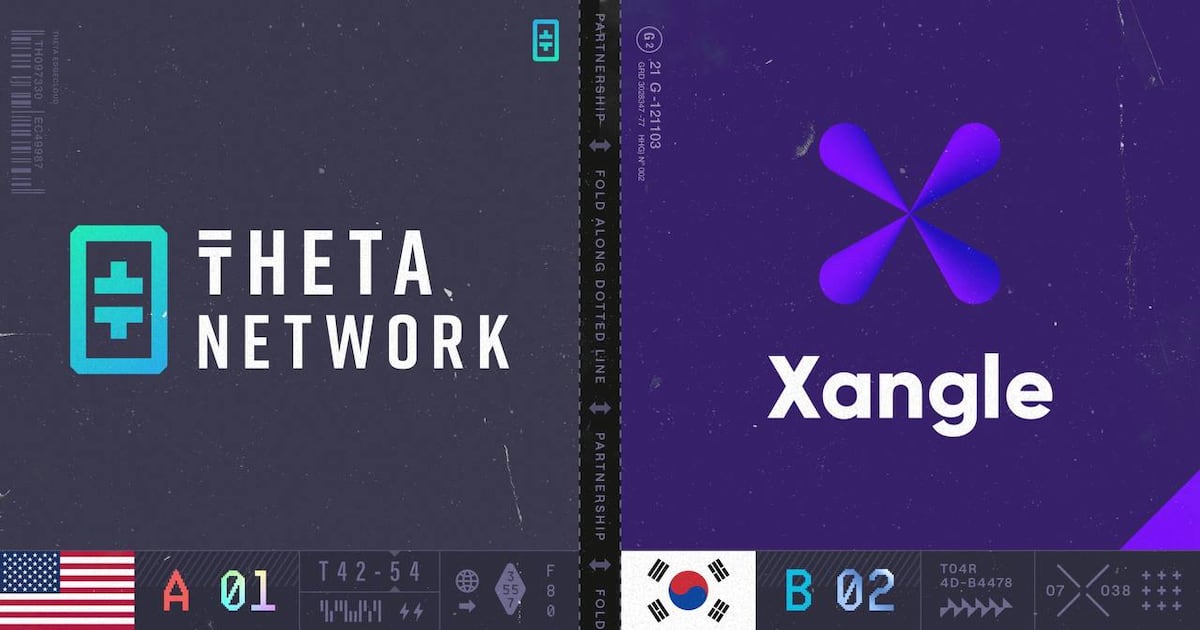
15 days ago
Xangle Joins Theta Network as Enterprise Validator, Enhancing Blockchain Infrastructure
On the 9th, blockchain infrastructure corporation Xangle announced its entry into the global blockchain mainnet Theta Network as an enterprise validator. Theta Network is renowned for providing decentralized cloud infrastructure tailored for sectors such as artificial intelligence (AI), media, sports, and entertainment. It boasts a robust framework supported by over 30,000 distributed edge nodes worldwide, ensuring efficient operation and governance. The network has garnered strategic investments from notable entities including Samsung Next, Sony Innovation Fund, Bertelsmann Digital Media Investments, and Creative Artists Agency (CAA), with global giants like Google, Samsung, and Binance also participating as enterprise validators.
As part of its commitment to the Theta ecosystem, Xangle will stake a total of 200,000 Theta (THETA) tokens, significantly enhancing network security and governance as a validator node. The company aims to actively contribute to the expansion of the decentralized physical infrastructure network (DePIN) and the AI ecosystem that Theta promotes. Founded in 2018, Xangle has established itself as a leading web3 infrastructure service provider and research platform in Korea, offering community hubs, blockchain explorers, and comprehensive web3 industry analysis reports. It has also served as a validator for various global projects, including Aptos, Babylon, 0G, and Initia.
Lee Hyun-woo, co-CEO of Xangle, expressed enthusiasm about the partnership, stating, "We are very pleased to be listed as an enterprise validator alongside Google, Samsung, and CAA through our strategic partnership with Theta." He emphasized that staking in Theta's validator network aligns perfectly with Xangle's mission to enhance trust, decentralization, and transparency in layer 1 blockchains. Mitch Liu, co-founder and CEO of Theta Network, echoed this sentiment, highlighting Xangle's strengths in blockchain analysis and ecosystem development, and anticipating significant synergies in promoting Theta (THETA) and Theta Fuel (TFUEL), along with enhancing the overall security and scalability of the Theta blockchain.
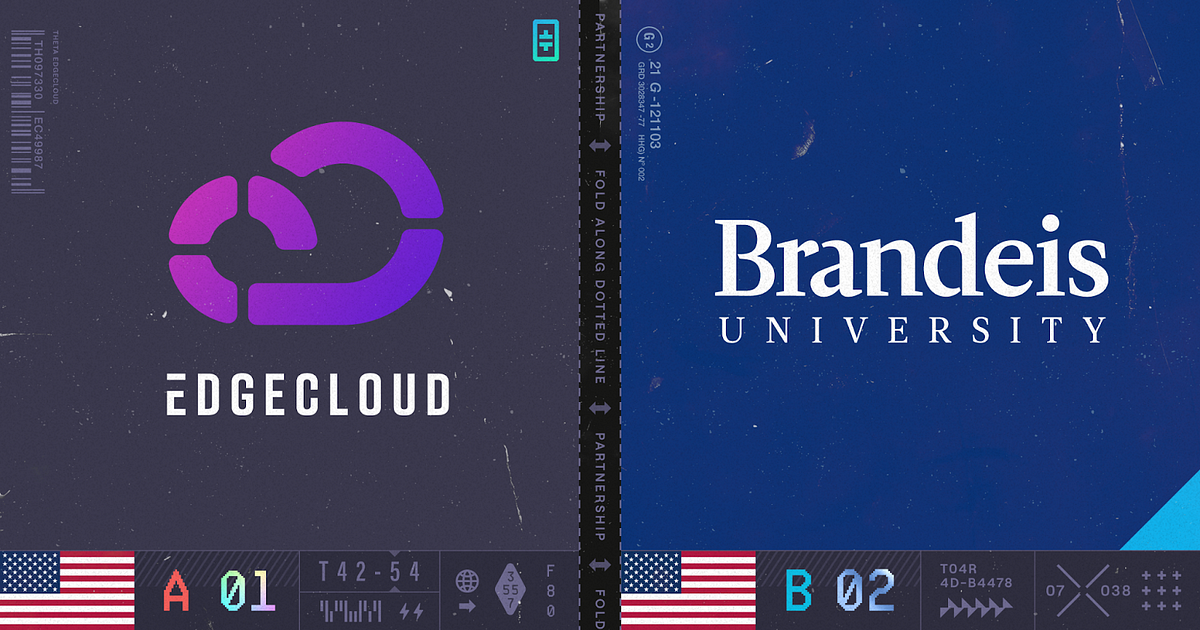
19 days ago
Theta Network Partners with Brandeis University to Enhance AI Research
Theta Network has announced a significant partnership with the Liu Lab at Brandeis University, led by Professor Hongfu Liu, to utilize Theta EdgeCloud for enhancing machine learning (ML) and artificial intelligence (AI) research. This collaboration marks a pivotal moment for Theta as it solidifies its position as a leader in decentralized GPU infrastructure for academic research. The Liu Lab joins a prestigious list of institutions, including Stanford University and Seoul National University, that are leveraging EdgeCloud’s hybrid GPU capabilities to boost productivity in AI research. By integrating these decentralized resources, the lab can access scalable and high-performance computing power, which is crucial for advancing their research initiatives in data-centric learning and clustering analysis.
Professor Liu emphasized the benefits of this integration, stating that the flexibility and cost-effectiveness of Theta EdgeCloud allow their team to focus on innovative research projects without the burden of managing extensive computational resources. The lab's research primarily revolves around data-centric learning, which prioritizes the quality and diversity of training data over mere algorithm refinement. This approach is essential for developing reliable and fair machine learning models, as it ensures that the datasets used are well-annotated and representative of real-world scenarios. The Liu Lab's ongoing studies in this domain include various applications such as noisy label correction and active learning, showcasing the breadth of their research capabilities.
Theta EdgeCloud’s decentralized infrastructure not only empowers the Liu Lab but also supports a wider academic community by providing on-demand, high-performance computing resources. This initiative allows researchers to dynamically allocate resources, optimizing both performance and cost for large-scale projects. As Theta Network continues to partner with leading institutions, it aims to facilitate groundbreaking research in AI and machine learning, ensuring that researchers can focus on their work without the constraints of traditional computing limitations. This collaboration represents a significant step forward in making advanced AI research more accessible and efficient for academic institutions worldwide.
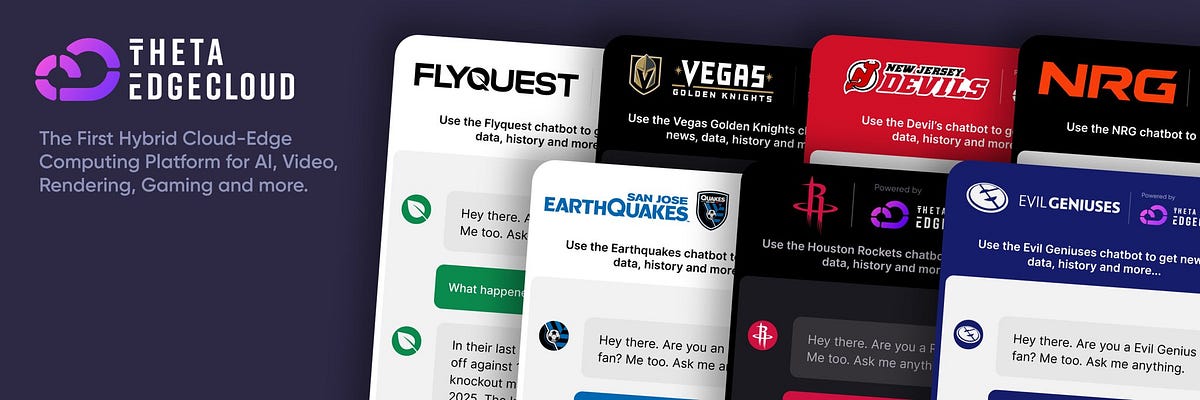
20 days ago
Theta Ecosystem Expands with AI Innovations and Sports Collaborations
The Theta ecosystem is witnessing significant growth and adoption across various sectors, including sports, media, academia, and AI startups. In the latest April roundup, Theta has made headlines with its collaboration with the NBA's Houston Rockets, launching an innovative AI-powered mascot named "ClutchBot." This initiative marks a pivotal moment for Theta as it expands its influence in professional sports, showcasing the potential of AI technology in enhancing fan engagement and experience.
In addition to its partnership with the Houston Rockets, Theta is also making strides in Major League Soccer (MLS) by assisting the San Jose Earthquakes in launching the league's first interactive AI agent chatbot. This development highlights Theta's commitment to integrating AI solutions into sports, further establishing Theta EdgeCloud as a leading platform for AI applications in both professional sports and esports. The platform continues to attract a growing roster of team partners, solidifying its position in the market.
Moreover, academic institutions are increasingly recognizing the value of Theta's technology. Stanford University's AI Lab, led by Professor Vitercik, has begun utilizing Theta EdgeCloud for AI research, demonstrating the platform's versatility beyond sports. Theta has also introduced the first decentralized On-demand AI Model API Service, which adds more AI models to EdgeCloud. This expansion is complemented by top esports teams like NRG and EvilGeniuses launching their own Agentic AI chatbots powered by EdgeCloud. As the Theta World Tour continues at events like Paris Blockchain Week and Token2049 in Dubai, the platform is gaining more press coverage and visibility in the blockchain space.
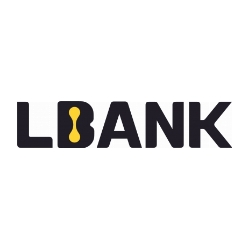
24 days ago
LBank Lists Phoenix (PXT): Bridging AI and Decentralized Infrastructure
On April 24, 2025, LBank Exchange announced the listing of Phoenix (PXT), a new digital asset designed to bridge the gap between Artificial Intelligence (AI) and decentralized physical infrastructure networks (DePIN). The PXT/USDT trading pair is now available, marking a significant step in the evolution of Web3. Phoenix aims to provide a modular and scalable framework for developing AI agents and intelligent applications directly on the blockchain, enhancing user interaction with digital assets and decentralized governance.
Phoenix's ecosystem is built on the principles of composability and accessibility, allowing developers and users to create autonomous agents and decentralized applications with minimal technical barriers. The integration of AI with DePIN transforms decentralized networks into programmable economies, enabling AI agents to engage in value creation and resource coordination autonomously. This innovative approach addresses critical limitations in the current Web3 landscape, such as cross-chain interoperability and the complexity of onboarding non-technical users, while enhancing the real-world utility of decentralized systems.
The native utility token, PXT, plays a vital role in the Phoenix ecosystem, facilitating economic interactions and incentivizing participation among developers, agents, and users. With a total supply of 21 billion PXT tokens, the distribution includes community incentives, ecological development funds, and allocations for team support and strategic partners. This tokenomics model not only fuels transactions and dApp operations but also fosters a sustainable DePIN economy, allowing for staking and cross-chain economic activities. Phoenix is poised to drive the next wave of adoption at the intersection of AI, DeFi, and digital infrastructure.
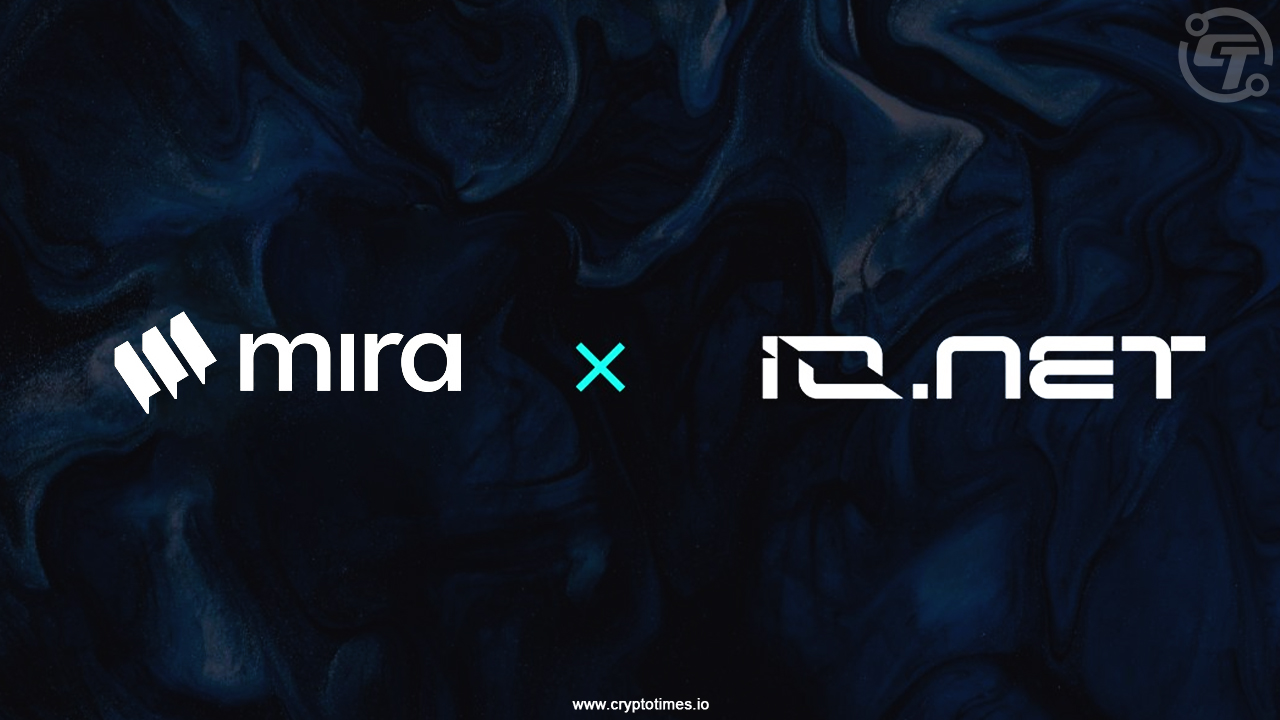
25 days ago
io.net and Mira Network Forge Partnership to Enhance AI Reliability
In a significant development for the decentralized AI landscape, io.net, a DePIN for GPU compute, has announced a strategic partnership with Mira Network. This collaboration is set to tackle the pressing challenges of AI accuracy and reliability, aiming to create scalable and decentralized solutions for advanced AI applications. By leveraging io.net's decentralized GPU infrastructure, Mira Network intends to enhance its operations while simultaneously reducing costs and latency, thus paving the way for more efficient AI implementations.
A key component of this partnership is the support for Mira Network's Node Delegator Program, which allows contributors to delegate GPU resources. This initiative lowers the technical barriers for individuals and organizations eager to engage in the decentralized AI ecosystem, enabling them to support Mira's consensus operations while earning network rewards. As AI technology continues to evolve, the partnership seeks to ensure that AI can deliver consistent, reliable, and unbiased insights, a sentiment echoed by Tausif Ahmed, Chief Business Development Officer at io.net.
The urgency of addressing AI's accuracy challenges is underscored by the current error rates that can reach up to 30% in tasks requiring advanced reasoning. Mira Network aims to mitigate this issue through innovative developments that evaluate AI-generated outputs across various models. Their new integrations have reportedly reduced first-pass mistakes to below 5%, with aspirations to achieve error rates of less than 0.1% through ongoing research. Stone Gettings, Head of Growth at Mira Network, emphasizes that the partnership with io.net will be crucial in further decentralizing their network and providing users with access to reliable GPU resources, thereby accelerating AI adoption in various sectors.
Signup for latest DePIN news and updates